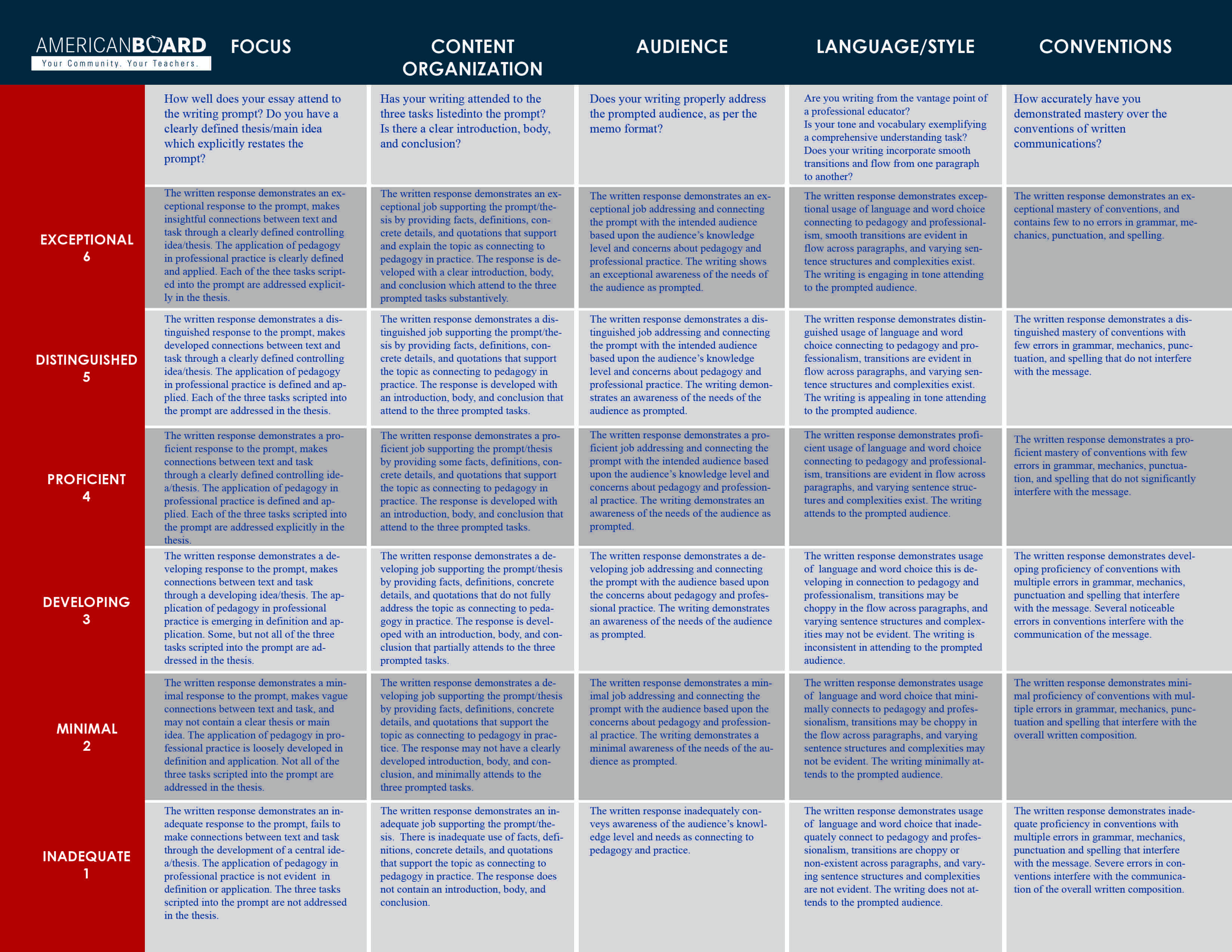Sample Essays
All essays are scored between 1 and 6, with 6 being the highest possible score an essay can receive. The rubric above spells out exactly what components your essay must have in order to earn a passing score. An essay must score 4 or higher to be considered passing. Below are examples of essays from each scoring bracket. Please review to familiarize yourself with what a passing essay looks like.

A score of six indicates an outstanding response that is very effective at communicating its message to the specified audience. The response is well organized and contains a very clear introduction, body, and conclusion. It maintains a clear flow of ideas and a sustained focus with a clearly evident purpose. The writer fully develops and elaborates ideas. The writer demonstrates mastery of grammar and mechanics (e.g., spelling and punctuation) and uses great variety and complexity in sentence structure. Word choice is precise and diverse, and a strong vocabulary is evident. Any essay scored as “6” is considered to be a passing essay.

A score of five indicates a very good response that effectively communicates a message to the specified audience. The writer maintains a focused, well-organized presentation that contains a coherent introduction, body, and conclusion. The focus is clear and the flow of ideas maintains that focus. The writer exhibits strong control in the development of ideas and provides details in support of those ideas. Sentence structure is varied and word choice and vocabulary are appropriate to the message. There is strong control of grammar and of mechanics such as spelling and punctuation. Any essay scored as “5” is considered to be a passing essay.

A score of four indicates an adequate response that competently communicates a message to the specified audience. Though the purpose and focus of the response may be clear, the development of ideas may not be fully realized. The writer’s organization of ideas is evident but may lack specificity, be incomplete or not developed in effective sequence. Sentence structure is adequate, although there may be some minor errors in word choice and vocabulary. There is evidence of control in grammar and mechanics, though minor errors in the use of conventions may be present. Any essay scored as “4” is considered to be a passing essay.

A score of three indicates a limited response that only partially communicates a message to the specified audience. The purpose and central idea are only partially evident and focus may wander from the central idea. An introduction and a body may be present, but a conclusion may be missing. Though there may be some limited development of ideas, they may not be fully supported with details. Although the response may exhibit limited control in grammar and mechanics, there may be distracting errors in spelling, punctuation, the use of grammatical conventions, a lack of precision in word choice and limited vocabulary. Any essay scored as “3” is not considered passing; the exam will have to be taken again.


A score of one indicates a fundamentally deficient response that shows little evidence of mastery of organization, development, sentence structure, and mechanics. Any essay scored as “1” is not considered passing; the exam will have to be taken again.




